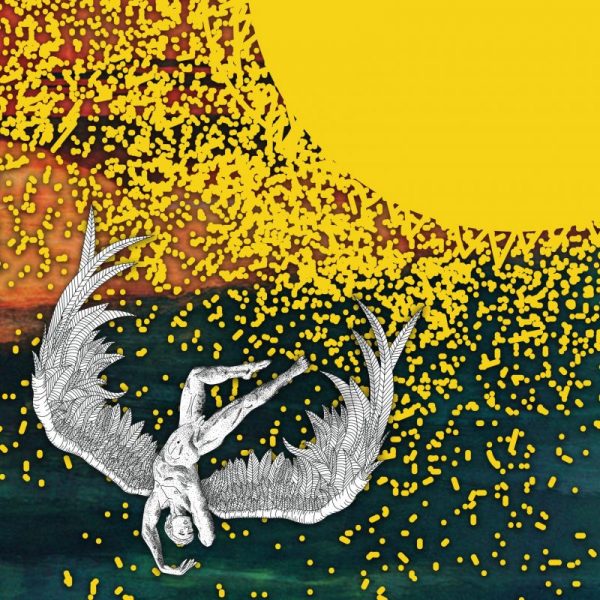
By Alexis Rivierre
The Kranzberg Arts Foundation is pleased to announce our 2020 Gallery Exhibitions featuring 14 artists who answered our call for the theme of Knowledge. Many of the artists utilize varied applications of language while considering the historical, intuitive, and practical applications of knowledge in our culture. Working in collage, photography. painting, printmaking, and sculpture in addition to multidisciplinary pursuits, these exhibitions provide an expansive answer to the question, “What is knowledge?”
Selections for The Gallery at The Kranzberg
- Deborah Katon (2/7-3/13)- Staged as artifacts presented in a museum, What I Know, comprised of Katon’s fabricated artifacts juxtapose fact with fiction investigate the pursuit of knowledge in an age riddled with “fake news.”
- *Postponed until 2021* Deborah Douglas (3/20-4/24) – Investigating domesticity and interpersonal relationships through the lens of popular and visual culture Douglas utilizes text, found and personally invented images to present her exhibition Some Things I Know, Some Things I Only Believe.
- Jessica Witte and Chris Holtz (5/29-7/10) – Searching for logic amongst the everyday experiences of caregiving, Jessica Witte and Christine Holtz in a joint exhibition will examine the struggles and cathartic nature of parenthood.
- Lola Ogbara (7/17-8/7) – Ogbara’s Pleasure is All Mine challenges stigmas associated with the Black femme experience, exploring myths vs. reality, embodied within her metal and clay forms.
- Megan Kenyon (8/14-9/4)- Kenyon’s Consider displays oil paintings with collage elements that invite the audience to contemplate the multifaceted truth’s existing within one’s personal knowledge especially when opposing cultural views exist.
- Marina Peng (10/9-11/13) – Focusing on self-awareness and knowledge of one’s impact on society, Peng’s site-specific installation will feature a series of unconventional portraits built from conversational interviews.
- Margaret Keller (11/20-12/31) Keller’s multidisciplinary exhibition engages with the revealing nature of surveillance, in particular, the surveillance practices of the U.S. government.
Selections for High Low
- Caroline Philippone (1/14-2/28) – Highlighting the youth impacted by the sociopolitical climate induced by the U.S. 2016 presidential election, Philippone’s documentary photography in American Dream gives voice to documented and undocumented teen immigrants.
- Jane Birdsall-Lander (3/5 -4/10) – “The Dictionary Poem Project is the starting point for an experience, a journey into the center of language, design and the human condition,” Birdsall- Lander notes in respects to archival prints displayed in her upcoming exhibition.
- Linda Vredeveld (4/17-5/22)- Vredeveld’s collages will question the perceptions and expectations of the storyteller, the keeper of knowledge, particularly as it pertains to fairytales and cultural standards.
- Stan Strembicki (5/29-7/3)- Photographing destroyed books in the aftermath of Hurricane Katrina, Strembicki’s The Lost Library draws parallels to decay of knowledge, history, and culture amidst the storm and the effects of the hurricane on both the city of New Orleans and the flooded libraries.
- Hayveyah McGowan (7/10-8/14) -Reclaiming autonomy at the intersection of societal expectations of race and gender, McGowan presents energetic typographic illustrations, vellum ink prints, and paintings in “A Need to Simply.”
- Joan Levinson (10/2-11/14) – For Levinson, words both carry meaning and hold weight as visual objects; she presents her take on concrete poetry where the linguistic, visual and material considerations are equally elevated in her oil paintings.
- Sarah Bernhardt (11/20-12/31) – Bernhardt presents, Manna, literally translated as “what is it?” Her documentary photography exists at the intersection of wonder and knowledge considering the intuitive knowledge that comes from observing and appreciating one’s surroundings.
Volunteer jurists each contributed their unique viewpoints while working to establish shared criteria for the evaluation of the artwork submitted. Selections were based on the merit of concept in respects to the Knowlege theme and originality in design, in addition to the application of materials and demonstrated technical skill. The Kranzberg Arts Foundation would like to thank the jurors who contributed their time, expertise and experience in a variety of roles in the visual arts towards the selection of artists. Our esteemed jurors this year were Michael Behle (artist/ educator), Shabez Jamal (interdisciplinary artist), Saj Issa (multidisciplinary artist), Sukanya Mani (interdisciplinary artist), Buzz Spector (artist/ critic), and Ilene Berman (sculptor).

